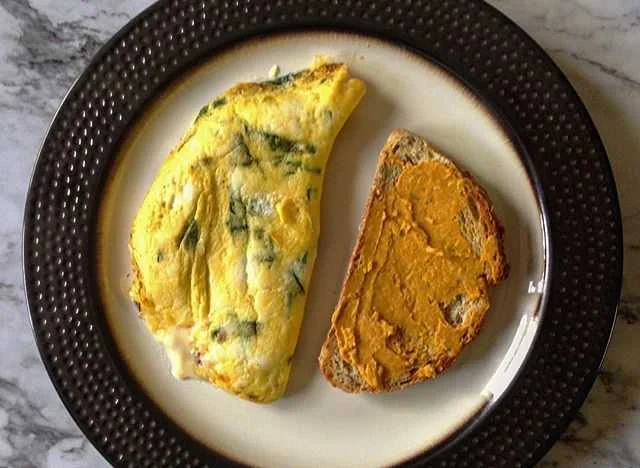Pre-Workout foods: dispelling doubts
To clarify these and other questions, we spoke to nutrition experts who gave us advice to ensure you don't make mistakes when choosing your pre-workout menu. Check it out:
A key factor in pre-workout food selection is the glycemic index of foods (high, medium or low), which determines how quickly the body absorbs food after eating it.
The higher the glycemic index, the faster they raise blood glucose levels and provide energy to the body (and vice versa).
As a result, eating high GI foods at the wrong time can overload the pancreas, making it difficult to oxidize fatty acids and hindering athletic performance.
Exact time for pre-workout
Some specialists insist that you should not workout for more than 2.5 hours on an empty stomach. Therefore, the best time to eat is between 45 minutes and an hour before workout.
If the food is eaten only 30 minutes before going into action, it should only be carbohydrates, as carbohydrates are our body's main source of energy.
It is suggested that foods with a low or medium glycemic index be preferred, as they provide less sugar to circulate in the blood and more energy during exercise.
If you prefer, you can eat a simple carbohydrate source at the same time as a complex source (for example, a banana with oats).
If you have no choice but to eat around the time of your workout, opt for a banana with low-fat yogurt. If you still have an hour before your workout, eat something stronger, such as oatmeal with red fruits. There is no shortage of pre-workout food choices, as you'll see.
It all depends on how long you're going to digest before your workout, to avoid discomfort during exercise and to make sure your muscles don't run out of glycogen.
Beware of reactive hypoglycemia
Foods with a high glycemic index, such as simple carbohydrates, act on the body by providing quick and punctual energy.
Thus, if eaten alone, they can cause so-called reactive hypoglycemia. It causes a drop in glucose (hypoglycemia) in the body even after the person has eaten, causing discomfort (dizziness, vomiting, etc.) and compromising the proper functioning of the body.
The best thing to do in such cases is to stop the workout. However, if the symptoms are mild, the situation can be reversed by ingesting carbohydrates from gels and isotonics.
To avoid reactive hypoglycaemia, the ideal thing to do is to combine a simple carbohydrate with another carbohydrate with a lower glycaemic index or with a "good" fat, such as chestnuts or coconut oil, and even with a protein, such as milk or its derivatives, or with meat and eggs," advises Vivian Ragasso, sports nutritionist at the Cohen Institute.
What NOT to eat before a workout
Just as some foods contribute to better performance, others can compromise it. In order to know which foods to avoid before workout, it is necessary to assess the biological individuality of each individual.
"Some people do not tolerate milk and dairy products before workout because they cause stomach discomfort. Others are unable to eat solid foods in the early morning before workout and prefer something liquid," Ragasso explained.
According to the nutritionist, it is good to avoid bad fats, fried foods in general (because of the difficulty of absorption), sodas and drinks with a high refined sugar content and very heavy foods, which only contain foods with a high glycemic index or foods rich in protein (they make digestion difficult).
5 best pre-workout foods
1.Rice: source of rapidly absorbed carbohydrates, without a large amount of fat, it is a good pre-workout meal.
If you need to workout at night, try combining rice with lean protein, such as chicken, to make the meal more complete.
2. Oats: Oats are a source of low glycemic index carbohydrates, rich in protein and fibre that reduce cholesterol levels thanks to a high level of b-glucan (soluble fibre).
"Recent studies have shown that there is an exclusive component of oats that can have an antioxidant effect and help reduce cardiovascular problems; these are avenantramides, powerful polyphenols with proven antioxidant activity," explained sports nutritionist Giulianna Pansera.
3. Banana: it is one of the favourite fruits of all athletes. Rich in carbohydrates, it contains a lot of potassium (responsible for the balance and distribution of water in the body, muscle relaxation, balance and regulation of neuromuscular activities).
Its absence - or deficiency - can cause cramps, abdominal distension, decreased reflexes and pulse changes.
In addition to potassium, bananas contain vitamin B6 and magnesium, an important mineral for bone maintenance and for the balance of calcium, potassium and sodium.
4. Sweet potato: an excellent source of energy, easy to eat at any time and in a variety of ways. It is rich in complex carbohydrates, has a very low fat content and, as if that were not enough, contains vitamins C and B complex, as well as iron, potassium, calcium and phosphorus.
5. Noodles: Like rice, it contains a huge concentration of rapidly absorbed carbohydrates that provide energy for workout. But be careful with the sauce.
Avoid oils. If possible, choose plain tomatoes with olive oil to gain more nutrients and antioxidants (lycopene).


